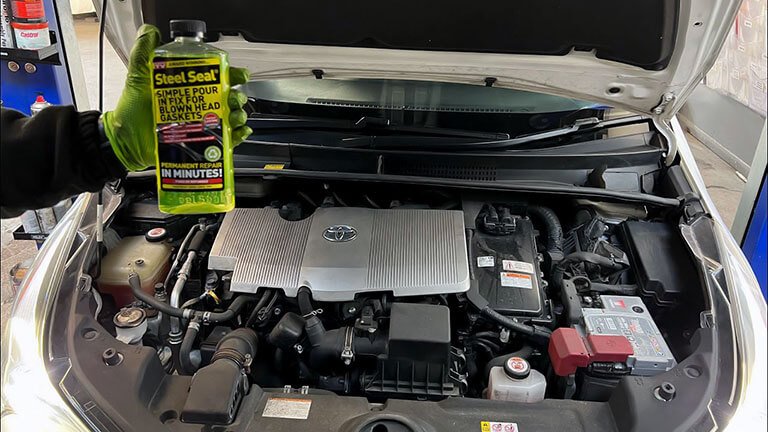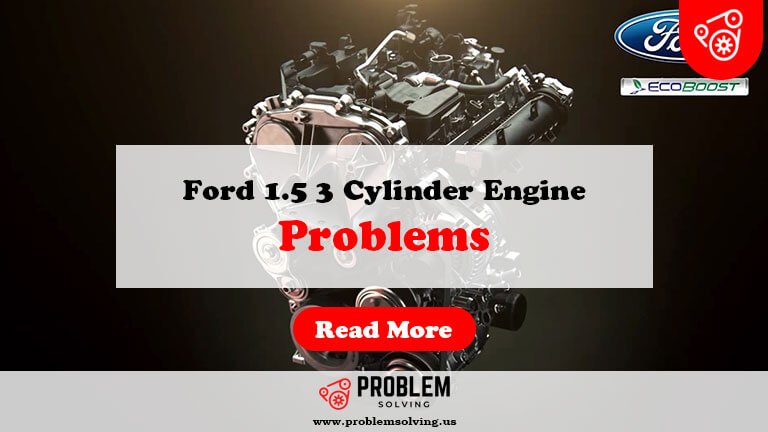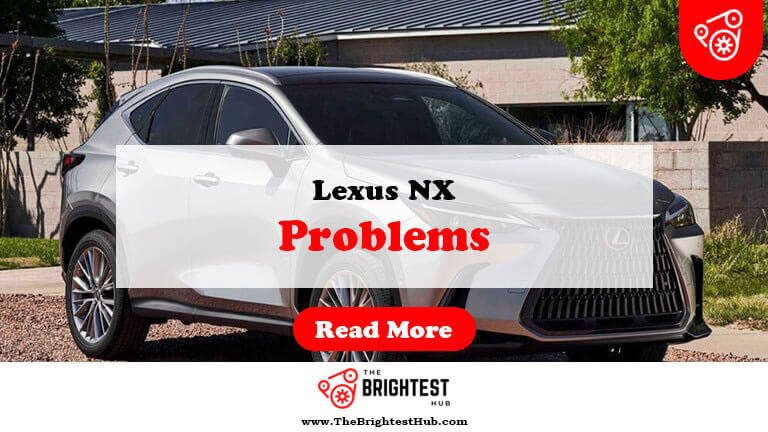Toyota Hybrid Engine Problems: Quick Solutions Guide
Toyota hybrid engines can face issues like battery degradation, electrical malfunctions, and software glitches. Regular maintenance and timely diagnostics can help mitigate these problems.
Toyota has built a strong reputation for reliability, particularly with its hybrid models. As hybrid technology becomes more prevalent, understanding potential engine problems is essential for owners. Common concerns include battery life, which can diminish over time, and electrical system issues that may disrupt performance.
Owners often experience software glitches that affect the vehicle’s efficiency. Staying informed about these challenges can help you maintain your Toyota hybrid effectively. Regular check-ups and following manufacturer guidelines will ensure your hybrid runs smoothly and efficiently. This proactive approach safeguards your investment and enhances your driving experience.
Introduction To Toyota Hybrid Engines

Toyota has been a leader in hybrid technology for many years. Their hybrid engines combine gasoline and electric power. This results in better fuel efficiency and lower emissions. Many drivers prefer these vehicles for their innovative features.
The Rise Of Hybrid Technology
Hybrid technology started gaining popularity in the late 1990s. Toyota launched the Prius, the first mass-produced hybrid car. Since then, many other models have followed.
- Increased fuel efficiency
- Lower emissions
- Government incentives for eco-friendly vehicles
As technology improved, hybrid engines became more efficient. Consumers began to see the benefits of owning a hybrid vehicle. Today, Toyota offers a wide range of hybrid models.
Benefits Of Driving A Toyota Hybrid
Driving a Toyota hybrid offers several advantages:
- Fuel Savings: Hybrids use less fuel, saving money.
- Environmental Impact: Lower emissions help the planet.
- Quiet Operation: Electric motors run quietly, enhancing comfort.
- Regenerative Braking: This feature recovers energy while braking.
Many drivers enjoy the smooth and quiet ride of hybrids. They offer a great balance of power and efficiency. With ongoing advancements, Toyota continues to improve hybrid technology.
Common Issues With Toyota Hybrid Engines
Toyota hybrid engines are known for their efficiency. However, they can face some common issues. Understanding these problems helps owners take better care of their vehicles.
Battery Life Concerns
The hybrid battery is crucial for performance. Over time, it can lose its ability to hold a charge. Here are some key points about battery life:
- Age: Most batteries last 8-10 years.
- Usage: Frequent short trips can drain the battery.
- Temperature: Extreme heat or cold affects battery performance.
- Signs of Failure:
- Decreased fuel efficiency.
- Frequent warning lights.
- Unusual noises from the battery pack.
Regular maintenance checks can help spot issues early.
Electric Motor Glitches
Electric motors in hybrid cars can also face problems. These glitches may lead to reduced power or performance. Here are common symptoms:
| Symptom | Possible Cause |
|---|---|
| Loss of acceleration | Motor failure or electrical issues |
| Unusual noises | Worn-out components |
| Warning lights | Faulty sensors or connections |
Addressing electric motor glitches promptly is essential for safety.
Diagnostic Tips For Identifying Hybrid Engine Problems
Identifying issues with your Toyota hybrid engine can save time and money. Early detection can prevent major repairs. Here are some effective diagnostic tips to help you troubleshoot hybrid engine problems.
Using Onboard Diagnostics (obd)
Onboard Diagnostics (OBD) is essential for diagnosing hybrid engine issues. It helps you read error codes. Follow these steps for effective OBD usage:
- Locate the OBD-II port in your vehicle.
- Plug in the OBD-II scanner.
- Turn on the ignition without starting the engine.
- Read the codes displayed on the scanner.
- Refer to the manual for code meanings.
Common OBD codes for hybrid engines include:
| Error Code | Meaning |
|---|---|
| P0A80 | Battery Pack Performance Problem |
| P3000 | Battery Control System Malfunction |
| P0A94 | Hybrid Battery Temperature Sensor Failure |
Visual Inspection Techniques
A visual inspection can reveal many hybrid engine problems. Look for these signs:
- Check for fluid leaks under the vehicle.
- Inspect the battery for corrosion.
- Examine wiring for wear or damage.
- Look at the coolant level in the reservoir.
- Check for unusual sounds from the engine.
Use these techniques to ensure a thorough inspection:
- Start with the engine turned off.
- Open the hood and examine components.
- Look for loose or disconnected parts.
- Assess the condition of belts and hoses.
Regular visual inspections can prevent serious issues. Stay proactive to keep your hybrid running smoothly.
Quick Fixes For Toyota Hybrid Engine Problems
Toyota hybrid engines are known for their reliability. Yet, issues can arise. Quick fixes can save time and money. Here are two effective solutions: battery conditioning and software updates.
Battery Conditioning
Battery conditioning is vital for hybrid performance. It helps maintain battery health and efficiency. Follow these steps:
- Drive your car regularly.
- Avoid short trips that drain the battery.
- Use the EV mode for short distances.
Consider these benefits of battery conditioning:
| Benefits | Description |
|---|---|
| Improved Efficiency | Better fuel economy and energy usage. |
| Longer Battery Life | Extends the lifespan of your hybrid battery. |
| Enhanced Performance | Boosts overall vehicle performance. |
Software Updates
Software updates can fix many hybrid engine problems. They improve vehicle performance and efficiency. Check for updates regularly. Follow these steps:
- Visit the Toyota website.
- Find the software update section.
- Enter your vehicle’s VIN.
- Download and install updates as needed.
Benefits of software updates include:
- Bug fixes for existing issues.
- Improved fuel efficiency.
- Better battery management.
Professional Repair Solutions
Professional repair solutions can help with Toyota hybrid engine problems. These engines are unique and complex. They require specialized knowledge for effective repairs. Proper maintenance prevents small issues from becoming major problems.
When To Seek Expert Help
Identifying the right moment to consult a professional is crucial. Watch for these warning signs:
- Warning lights on the dashboard.
- Unusual noises from the engine.
- Decreased fuel efficiency.
- Frequent battery issues.
- Strange smells from the vehicle.
Addressing these symptoms early can save time and money. Don’t ignore them. Immediate attention can prevent further damage.
Finding A Qualified Hybrid Mechanic
Finding a qualified hybrid mechanic is essential for proper repairs. Consider these steps:
- Check for certifications in hybrid technology.
- Read customer reviews online.
- Ask for recommendations from friends or family.
- Visit their shop to assess cleanliness and professionalism.
- Request a quote for transparency.
Qualified mechanics have experience with hybrid systems. They understand both electrical and mechanical components. This expertise ensures your repairs are done correctly.
Preventive Measures To Avoid Future Problems
Taking steps to prevent Toyota hybrid engine problems can save you money. Regular maintenance and smart driving habits keep your car running smoothly.
Regular Maintenance Schedule
Follow a strict maintenance schedule for your Toyota hybrid. Regular checks help identify issues early. Here are key points to include:
- Check the oil level and quality every month.
- Change the oil every 5,000 to 7,500 miles.
- Inspect the air filter every 15,000 miles.
- Service the battery system annually.
- Rotate tires every 5,000 to 7,500 miles.
| Service Task | Frequency |
|---|---|
| Oil Change | 5,000 – 7,500 miles |
| Air Filter Check | Every 15,000 miles |
| Tire Rotation | 5,000 – 7,500 miles |
| Battery System Service | Annually |
Keep records of all services. This helps track your car’s health over time.
Eco-driving Tips
Driving habits influence the health of your hybrid engine. Follow these eco-driving tips:
- Accelerate gently to avoid stress on the engine.
- Maintain a steady speed. Use cruise control on highways.
- Anticipate stops. Slow down gradually.
- Avoid excessive idling. Turn off the engine if stopped.
- Keep tires properly inflated. Check monthly.
These habits enhance fuel efficiency. They also reduce wear on your engine.
Upgrading Your Toyota Hybrid System
Upgrading your Toyota hybrid system can enhance performance and longevity. Many drivers face issues with their hybrid engines. Solutions exist to improve efficiency and reliability.
Aftermarket Battery Packs
Aftermarket battery packs offer a practical upgrade option. They can replace old, failing batteries. Here are some benefits:
- Cost-effective: Often cheaper than OEM parts.
- Improved Performance: Higher capacity can boost power.
- Easy Installation: Many packs fit directly into existing spaces.
Consider these popular aftermarket battery brands:
| Brand | Features |
|---|---|
| Green Bean Battery | Lifetime warranty, high energy output |
| Hybrid Battery Repair | Reconditioned batteries, eco-friendly |
| Remy Battery | Long-lasting, reliable performance |
Performance Tuning For Hybrids
Performance tuning enhances your Toyota hybrid’s power and efficiency. Simple adjustments can make a big difference.
- ECU Remapping: Optimizes engine performance.
- Cold Air Intake: Improves airflow and efficiency.
- Exhaust System Upgrade: Increases horsepower.
Follow these steps for successful tuning:
- Research compatible tuning options.
- Consult with a professional tuner.
- Monitor vehicle performance after upgrades.
Upgrading your Toyota hybrid system can lead to better performance and reliability.
Conclusion: Embracing The Hybrid Revolution
The world is shifting towards eco-friendly solutions. Toyota hybrids lead this change. While challenges exist, the benefits outweigh the drawbacks. Understanding these problems is key to enjoying the hybrid experience.
The Future Of Toyota Hybrids
Toyota is committed to innovation and sustainability. The future of hybrids looks bright.
- New models with advanced technology
- Improved fuel efficiency
- Enhanced battery life
- Greater market reach
Expect Toyota to focus on:
- Reducing emissions further
- Increasing consumer education
- Ensuring better service options
Staying Ahead Of Engine Troubles
Maintenance is crucial for hybrid longevity. Regular check-ups help in early detection. Here are some tips:
- Follow the manufacturer’s guidelines
- Monitor battery health regularly
- Check coolant levels and engine oil
- Be aware of warning lights
Stay informed about common issues:
| Problem | Symptoms | Solution |
|---|---|---|
| Battery Failure | Reduced mileage, warning light | Replace with OEM parts |
| Engine Overheating | Temperature gauge high | Check coolant and fans |
| Transmission Issues | Shifting problems, strange noises | Inspect transmission fluid |
Stay proactive. Timely actions prevent bigger issues later.
Frequently Asked Questions
What Are Common Toyota Hybrid Engine Issues?
Common problems include battery failure, overheating, and poor fuel efficiency.
How To Diagnose Toyota Hybrid Engine Problems?
Check error codes, inspect battery health, and monitor fuel consumption for signs of trouble.
What Causes Battery Failure In Toyota Hybrids?
Battery failure often results from age, extreme temperatures, or lack of maintenance.
Can I Repair My Toyota Hybrid Engine Myself?
Basic maintenance can be DIY, but complex issues need professional diagnostics and repairs.
How To Extend The Life Of A Toyota Hybrid Engine?
Regular maintenance, timely oil changes, and monitoring battery health can significantly prolong engine life. “`
Conclusion
Understanding Toyota hybrid engine problems is essential for owners. Regular maintenance and early diagnosis can prevent costly repairs. Stay informed about common issues and their solutions. This knowledge empowers you to make better decisions for your vehicle. Prioritize your hybrid’s health to enjoy its benefits for years to come.






